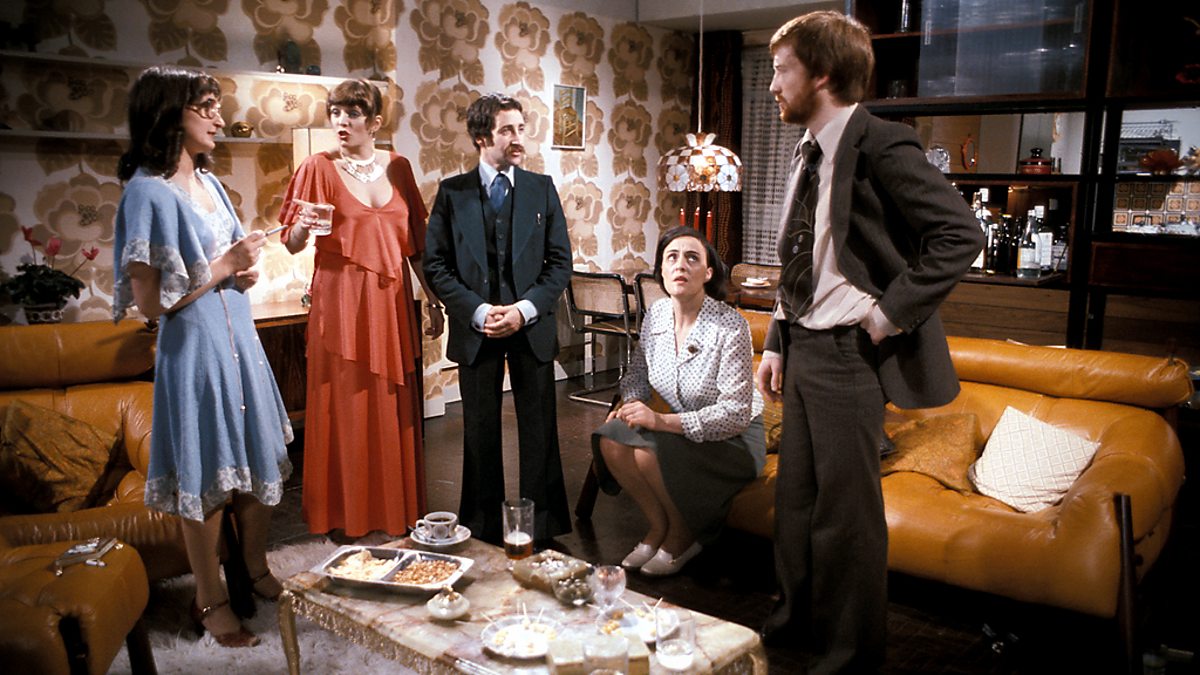A growing number of Brits would rather throw a party than turn on the central heating a few days early, according to a survey out today from TopCashback.co.uk, the cashback and comparison website.
To cut heating bills, seven in 10 are taking the obvious step of wearing extra layers of clothing and, slightly less obviously, moping around the house in hats, scarves and gloves.
Pubs are increasingly being shunned in favour of drinking at home with friends and family. One in ten are taking the chance of holding homemade cocktail nights and, in a touch evoking echoes of Abigail’s Party, the classic Mike Leigh study in embarrassment, to save on heating groups of friends are taking turns to host get-togethers.
It sounds like a recipe for excruciating social awkwardness. Sherry in hand, near-strangers agree that the weather is jolly cold these days before bemoaning the outrageous cost of keeping warm. Then the gentle bragging starts: who has the best deal from which obscure energy provider.
A few more drinks and out come the stage whispers about the naff wallpaper, the corny posters in the loo and the plastic glasses – which have been brought out only because the host doesn’t trust these guests with the best crystal.
As in the 1930s, the recession has made us all more cost-conscious, as we can tell from the threadbare profits announced by the likes of Tesco and M&S. But it raises the question of how far we should let our behaviour be driven by money.
Clearly it’s stupid to spend thousands you don’t have on a first-class, five-star trip round the world, so money always influences our behaviour somehow. And if you really are on the breadline, there is no alternative to counting every penny.
But, as we become more affluent, one generation’s scrimping is an earlier generation’s naturally lower standard of living.
My parents never went to the cinema, theatre was a once-a-year trip to the Christmas panto, and restaurants were a ridiculous extravagance confined to ‘big’ birthdays. But they weren’t cutting corners. They simply didn’t have the money or the inclination, and in years gone by people simply lived, well, more simply.
So, for many people nowadays, penny-pinching is only in the mind. Those who can afford to eat out once a week are doing so once a month, and scaling back other treats accordingly. But they are still living at a level their grandparents could only dream of.
In a crisis there is everything to be said for the Dunkirk spirit, all mucking in together, growing carrots in your window boxes and knitting woolly bedsocks.
Natasha Rachel Smith, TopCashback’s consumer affairs editor, believes we should save hundreds of pounds a year by switching energy providers – with cashback on top, of course.
But as a meal out for a family of four can easily cost well over £100, even those savings will soon be eaten up. And we should regularly check comparison sites anyway, not waiting until the bailiff is knocking at the door.
If money is tight and prices are rising, something has to give. If you are sacrificing everything for that pension that seems further away than ever, you had better order cassoulet instead of tournedos rossini.
But the same mindset can result in people who are not really skint clipping every coupon from the newspapers, or travelling at inconvenient times of the day or week to clinch a cheap ticket. All very worthy, and if that’s your hobby go forth and have fun.
But when newspapers and television are predicting doom and gloom all the time, it can be tempting to overreact. There are losers, certainly, such as those made redundant or forced to fold their business, but for most people life goes on – as it did in the 1930s.
It is ironic that the TopCashback survey has highlighted heating costs, as oil is half the price it was two years ago and that has dragged down charges for coal and other forms of energy. This is a far cry from 1974’s three-day week and inflation of around 20 per cent a year.
However, I am certainly glad I was a student when we received no-strings grants rather than loans, and graduates straight out of college could command a decent wage instead of being made to work for nothing for years on end in the hope of a job that never materialises.
There are always pluses and minuses. But, by tightening your belt unnecessarily, you are deliberately cutting your day-to-day standard of living – and that time can never be brought back. As my great uncle used to say, this is the only time in your life when you will be eating this meal on this day, so you might as well enjoy it.
By all means take advantage of deals, but step back from the frenzy and decide what is really important. It might be you will sacrifice everything for two weeks’ sunshine every January, or Christmas shopping in New York. But it may be that the feel and smell of a fresh loaf or a new book straight out of the shop is all you need.
So decide your priorities first, then work out how to adjust your budget to afford them – rather than the other way round.
And as for having the neighbours round for a night of building your own cocktails, you have to draw the line somewhere.
William Kay is a financial journalist who was City Editor of The Times and Money Editor of The Sunday Times






Comments